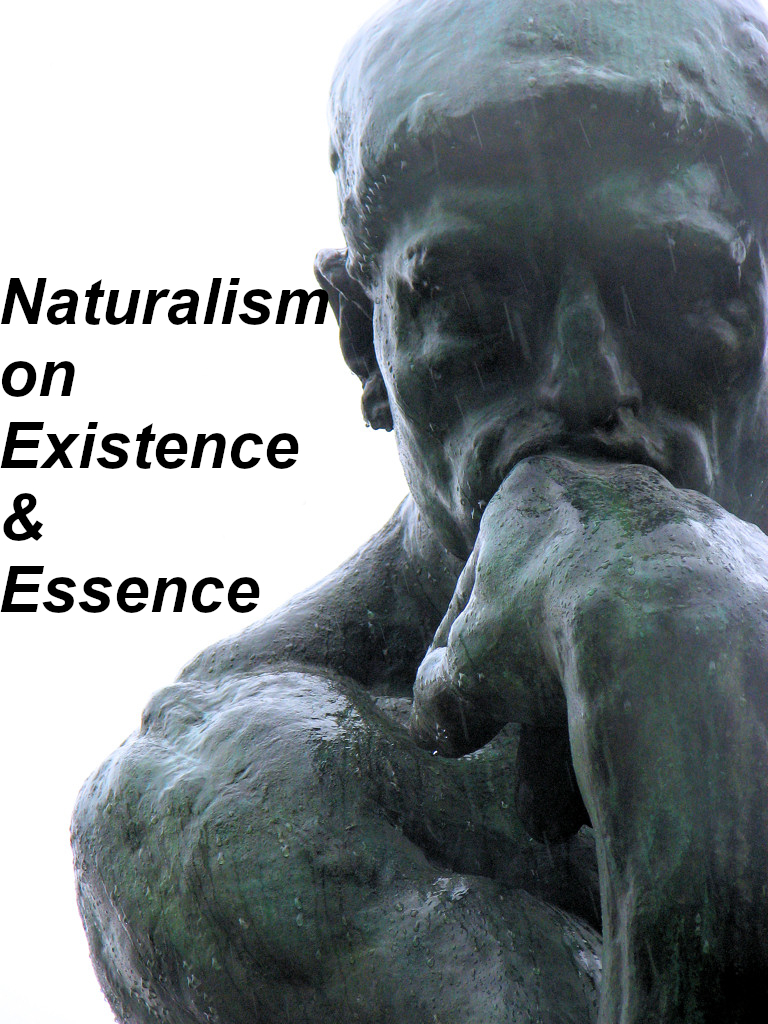
Naturalism’s grand philosophical perspective posits with total and wholehearted conviction, that the fundamental reality is the natural world. When it comes to the argument about essence, the naturalist position backs physical existence as primary over essence (existence precedes essence) and easily so, for naturalism has much to say on existence by drawing its material from the wealth of insights furnished by the discoveries of the natural sciences, especially what physics has to say as one branch of the scientific tree.
The notion of living essence as modern paradox
Ancient Greek philosophy saw the essence of an animal as fixed and immutable—unalterable and inherent to the species. This view can be seen in the works of philosophers such as Aristotle, who believed that each species of animal had a specific and permanent essence or “form” (ousia) that defined its nature and determined its characteristics. This form was thought to be present from the moment of the animal’s creation and to remain constant throughout its life.
When it comes to life itself I think the concept of essence in modern times has become paradoxical; it’s now both fixed and not fixed, still and yet changing. What I’m referring to is evolution by means of natural selection. One of the most profound intellectual revolutions in the history of science, Charles Darwin’s theory of evolution by means of natural selection, challenged and reshaped fundamental notions of essence in the realm of biology and philosophy. Before Darwin, the prevailing view, as inherited from thinkers like Aristotle, was that species possessed fixed and immutable essences, defining them for all time. Each species was believed to have an unchanging “form” or nature that determined its traits and characteristics from the moment of creation.
This traditional concept of essence was fundamentally called into question. Darwin proposed that species were not static creations but products of an ongoing and dynamic process. He posited that life on Earth was characterized by a struggle for survival, where individuals with advantageous traits had a better chance of surviving and passing on those traits to their offspring. Over time, this natural selection process could lead to significant changes in populations, eventually resulting in the emergence of new species.
This revolutionary idea had profound implications for the concept of essence. It suggested that the essence of a species was not a fixed and unchanging template but rather a flexible and evolving characteristic. Species could adapt and change in response to environmental pressures, rendering the idea of a fixed essence obsolete. In essence (pun intended), Darwin’s theory shifted the philosophical landscape by introducing the concept of changeable living things capable of speciation.
Naturalism on the Essential essence
So having touched on the profound impact of Darwinian evolution on our understanding of essence and the fluidity of life, we can now turn our attention to this concept known as “essential essence.” To expand on this, the essential essence of something is that characteristic which if it were negated or taken away would cease to be recognised as whatever it was; like a knife without a blade.
In the realm of philosophy, essential essence refers to the intrinsic and indispensable qualities that characterize and identify a particular entity. For instance, is the essence of a horse encapsulated in its genome? When it comes to the question of life and essential essence however, after reflection I think that the essential essence for all multi-cellular life on this planet is the genome; the sum total of all the genes in an organism. Would you say the essence of a horse is its genome? For if you negate the existence of this horse genome there can no horse genes to code for proteins to fashion a horse and therefore nothing for a human being to recognise the visual appearance shaped as ascribed as a horse! The genome contains the genetic information that directs the development and function of all the cells in an organism, and it is this information that ultimately determines the physical characteristics, behaviours, and traits of the organism.
Existence and essence though both concepts of the mind differ on their subject, existence is concerned with the concrete, visible and palpable object before us, while essence is more to do with characteristics.
We don’t need language to verify that something exists in front of us, it’s just plain bloody evident! We have the five senses to perceive whatever this something is! Essence however, is something confined to the world of language, it’s a construct of cognition and language. Yet essence allows us to point at objects and discriminate between objects that are otherwise just huge agglomerations of chemical molecules arranged in different patterns.
I think that the categories of essences come about because of the mind’s ability to discriminate contrasting phenomena able to be perceived. By grouping objects and experiences into categories based on shared characteristics, the mind is able to make sense of the abundance of information it receives from our senses and facilitate effective and efficient processing of that information.
Without essence a horse is just an ordered aggregate of atoms dancing to the ubiquitous laws of physics
Does the hole in the ground still retain its essence as being a hole if it were filled to the same level as the surrounding ground around it with dirt? It’s a simple question, but it opens the door to profound philosophical inquiries about the persistence of essence in the face of physical transformations.
The physical existence and material form of your being is what gives you identity; for how can others recognise you? The shape of your body, your height, colour, gait and even your voice are all physical manifestations. Let’s consider a scenario in which a person, whom we’ll call Dave, finds himself alone in a room. Dave has no one to interact with or attribute qualities to because there are no other individuals present. However, the moment someone enters the room and becomes the object of Dave’s perception, a process of ‘essence attribution’ begins.
Dave, upon perceiving this newcomer, starts to ascribe various qualities. These qualities can include general characteristics like ‘woman’ or ‘short,’ reflecting observable physical attributes. Yet, Dave’s attribution goes further. He doesn’t just categorize the person; he also recognizes her as a unique individual—’Sarah,’ in this case—someone Dave knows personally and distinctively. But to become an perceivable object in Dave’s mind, Sarah must first physically exist.
Therefore physical existence precedes essence.

